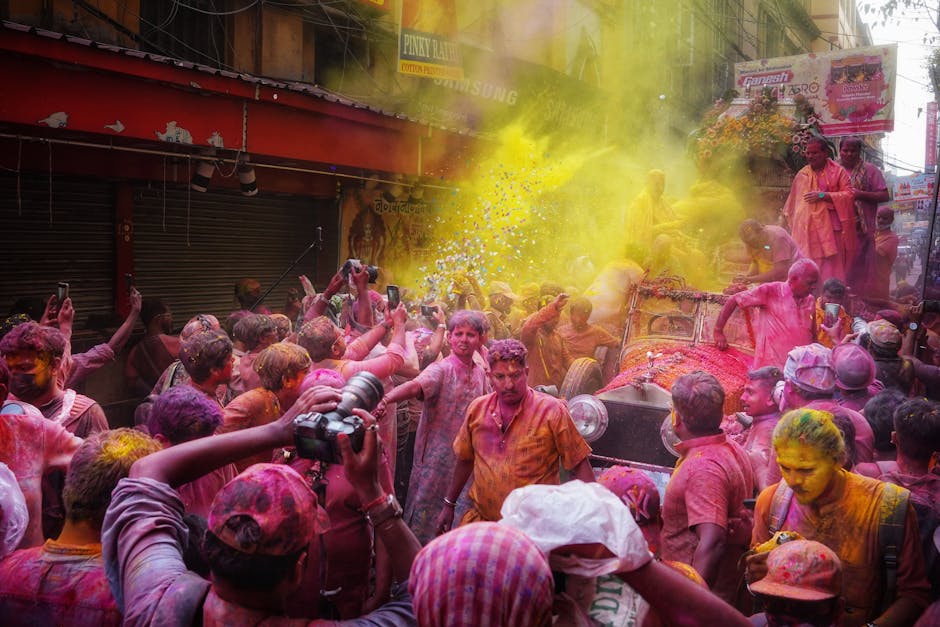A Masterclass in Performance
GOA – The air in the main auditorium at the International Film Festival of India (IFFI) was thick with anticipation. On the bill was not a film screening, but something arguably more captivating for the aspiring filmmakers and cinephiles gathered: a masterclass with the powerhouse duo behind some of modern Indian cinema’s most defining films, Vidhu Vinod Chopra and Abhijat Joshi.
But to call it a “masterclass” would be an understatement. What unfolded on stage was part stand-up comedy, part university lecture, and part a raw, unfiltered look into the chaotic, brilliant, and often hilarious process of creating cinematic history. It was less a lesson, and more a performance.
Vidhu Vinod Chopra, ever the fiery maestro, was in his element. Dressed in his signature black, he was a whirlwind of energy, gesticulating wildly, his voice booming with the same passion he pours into his films. Abhijat Joshi, the celebrated writer and the serene yin to Chopra’s yang, sat beside him, offering measured, insightful counterpoints with a gentle smile.
From ‘Jaadu ki Jhappi’ to ‘All Izz Well’
The session, titled “The Art of Storytelling,” quickly veered from textbook theories into the trenches of filmmaking. The real gold was in the anecdotes. Joshi recounted the genesis of the iconic “Jaadu ki Jhappi” from Munna Bhai M.B.B.S., explaining it wasn’t a grand, calculated plot device but a simple, heartfelt idea born from a personal memory.
Chopra, however, couldn’t resist a dramatic flourish. He jumped in, re-enacting his initial skepticism. “What is this ‘hug’ nonsense?” he boomed, mimicking his past self. “Give me action! Give me drama!” He then described the moment on set when Sanjay Dutt and Sunil Dutt performed the scene, and how a hush fell over the entire crew. “That day,” Chopra conceded, looking at Joshi, “I knew this writer had something special.”
The stories from the celebrated filmmaking duo kept coming. They spoke of the rigorous, often argumentative, writing sessions for 3 Idiots. Joshi revealed that the film’s “All Izz Well” philosophy came from a watchman he knew who would use the phrase to placate his own fears while on his nightly rounds. The duo playfully bickered on stage about a scene they had debated for weeks, with Chopra finally acting out both versions to let the audience decide. These weren’t just stories; they were live demonstrations of the creative friction that sparks their genius.
The Core Philosophy: Honesty and Empathy
Beyond the laughter, a profound message about their craft emerged. Chopra was adamant about the importance of honesty in storytelling. “Don’t write for the box office, don’t write for the stars, don’t even write for me!” he declared, pointing a finger at the audience. “Write what you believe. Write the truth.” He connected this philosophy directly to the sleeper success of his recent directorial, 12th Fail, a film he made with a fraction of the budget of his blockbusters but with, as he put it, “100% heart.”
Joshi added a quieter, but equally powerful, layer. He spoke about the importance of empathy, of truly understanding a character’s “one desperate need” before writing a single word of dialogue.
As the session concluded, the audience was left with more than just notes on screenwriting. They were left with a feeling of inspiration. The duo had pulled back the curtain, not to reveal a sterile, formulaic process, but a messy, passionate, and deeply human collaboration. For an hour, the IFFI stage was a testament to a partnership that has gifted Indian cinema some of its most cherished moments.




